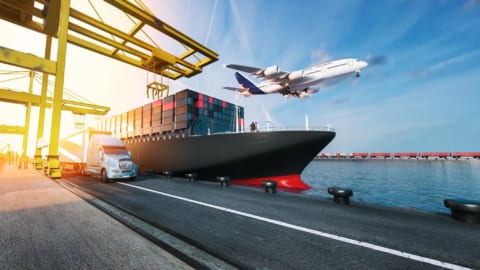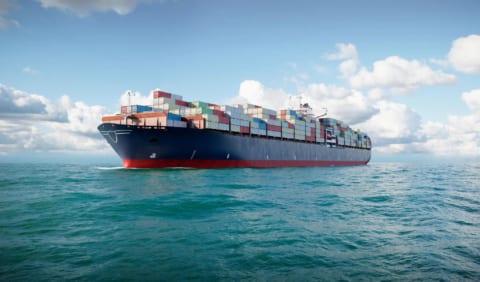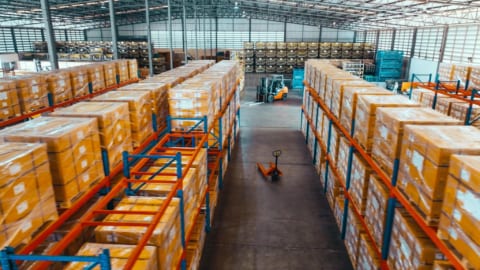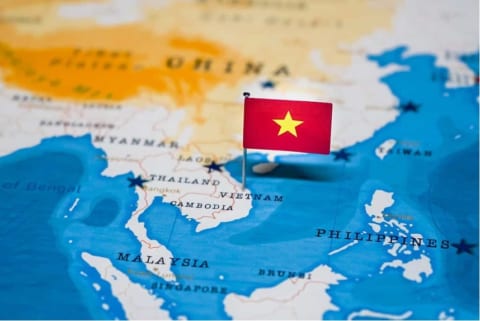FCL and LCL shipment are known as two common shipping terms that every international importer and exporter should master. What’s FCL and LCL shipment? How do they work? What’s their differences?
What do FCL and LCL shipment mean?
To gain a deep understanding of FCL and LCL shipment, it’s important to learn about containers. They are considered as a convenient form of transporting cargo aboard. The materials used to make containers are durable ones such as steel, fiber polymer and aluminum. Their sizes are stipulated by the International Organization for Standardization (ISO). Therefore, the size of containers come in standard dimensions, divided into 8,10,20,30 and 40-feet length types.
Though there are many kinds of containers, they still have something in common. Here is some regular features in their designs:
- There is a double door on both sides of a tunnel
- The open-sided containers are designed with one door which can be pulled down. They include one complete side
- Double open-sided containers are equipped with doors on the sides. They are able to be opened and closed
- Open-top containers are designed with tarpaulin roof, which can be removable
- To ship frozen and perishable cargo, refrigerated containers are appropriate
- To ship oversized cargo, flat rack containers are used as they have no roof or side panels but collapsible end frames
- To ship liquid cargo, tank containers are used
- To ship heavy cargo, half-height containers are considered
- For shipments containing cars, collapsible racks are ideal
- For granular cargoes, bulkers are appropriate
What’s FCL and LCL?
FCL stands for Full Container Load, which is for the use of a separate consignee. In shipping terms, an FCL is known as a single container only booked by the shipper exclusively for their shipments. The shipper does not have to share the booked containers with others. Using FCL is an ideal solution to improve the safety for cargo and simplify the shipping process.
In contrast, LCL shipment means “less than Container load” shipment . It’s appropriate for smaller shipments. If the size of the cargo does not demand that much space, the exporter should consider LCL shipment rather than booking an entire container. This strategy helps to save money and money since partial loads can be shipped economically on an LCL container.
Due to its convenience and flexibility, LCL shipment is commonly booked by freight forwarders. And a consolidation is also created by combining several partial loads (LCL cargoes). They book an FCL container and merge the same with partial loads coming from different shippers. After that, the cargoes are divided as per their final destinations or trans-delivery.
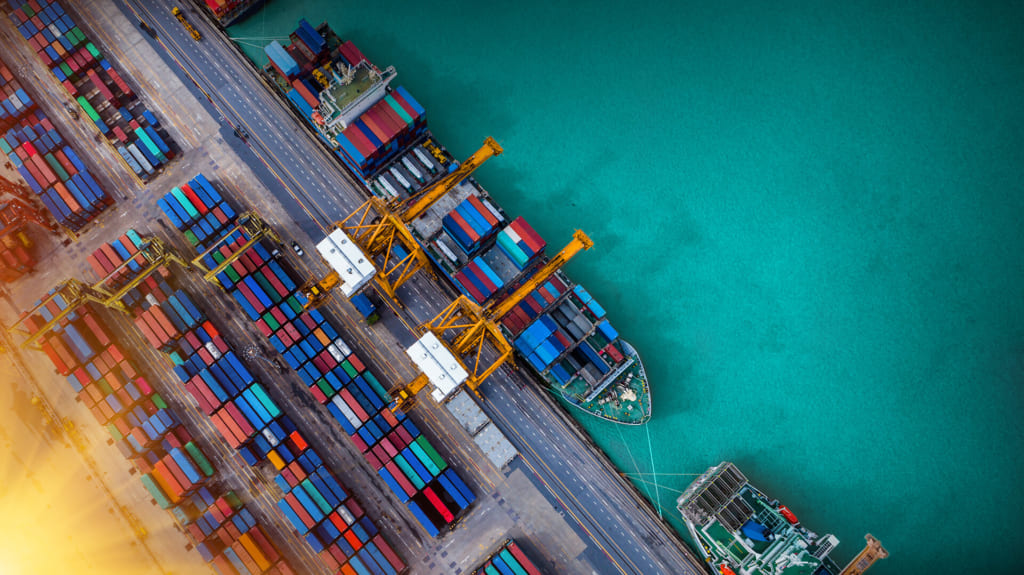
The differences between the shipping terms of FCL and LCL shipment
In order to ship goods under FCL terms, at least one entire container needs to be booked. On other hand, the shipper is free from paying more money for one whole container with LCL shipment. They only need to book a part of it. That also means in FCL containers, the parcels will belong to one company only compared to many different owners in the case of LCL shipment.
In regard to total costs, the shipment with FCL containers is considered to be more expensive based on sheer volume. But when looking at the dimension-wise side, the FCL shipment is often cheaper. Therefore, the LCL booking benefits business economically as for the total cost and is more expensive as to the cost per freight.
One of the most significant advantages of FCL shipment is that it helps to save time compared to LCL shipment. Because the shipper books the whole container, it’s not necessary to sort or unload the container until it arrives at its final destination. The potentiality of delays or having unwanted issues with customs is also decreased. In terms of LCL shipment, the total time of shipping process can be lengthened due to some possible reasons. For example, categorizing the cargoes and documents requires additional time. Moreover, packing and unpacking goods also can take more time in regard to LCL shipment compared to FCL shipments.
In the case of LCL shipment, there may be less obviousness about handling and documentation charges. Though LCL shipment freight charge is lower than FCL, there may probably contain higher terminal handling charges and documentation fees. Therefore, discussing the shipping terms carefully with the shipper is a crucial step before signing a contract.
In shipping practice, the increase in the number of cargo will lead to a break-even point. It’s where the cost of LCL exceeds that of FCL
Clearly, FCL containers are appropriate to heavy or bulky goods. Meanwhile, small and portable cargoes are ideal for LCL shipment.
Moreover, the FCL rates are considered to be explosive, in contrast, LCL shipment rates are more stable.
FCL and LCL: which is ideal for your business?
Here are some crucial points about FCL and LCL shipment that may be helpful for you in decision- making process:
Transit time is known as a key consideration to choose between two shipping options FCL and LCL shipment. LCL containers consist of various types of cargoes owned by many shippers. The carrier will combine partial loads into LCL containers whenever possible. Therefore, in case of LCL shipment, it might require some multiple trans- shipment ports. This can cause the postponement in the shipping process, thus, cargoes cannot arrive on time at their final destinations.
LCL shipment is often used for small cargo. But when the volume of the cargo reaches the break-even point, you should consider the cost of both FCL and LCL shipment. Aside from the freight, it’s possible that the haulage charges and destination services charges will be included. It’s probably that the buyer may recover these charges, however, future dealings may be affected by price escalation.
Making a decision between FCL and LCL shipment is simpler if you can understand these terms thoroughly. Balancing the cost of the shipment with the convenience and the total time of the shipping process is the major point in making the decision process.
WeDo’ FCL and LCL services
Our company provides a full range of FCL and LCL services on a user-friendly interface.
Visit here for:
- Instant FCL/LCL container sea freight rates & quotes
- Booking within seconds
- Verified and accredited sea freight forwarders
- Dedicated team of expertise sea freight specialists
- 24/7 online access for booking and tracking shipments




